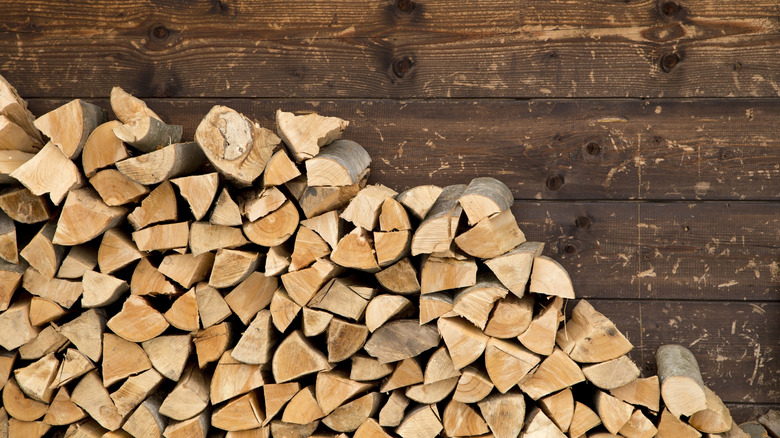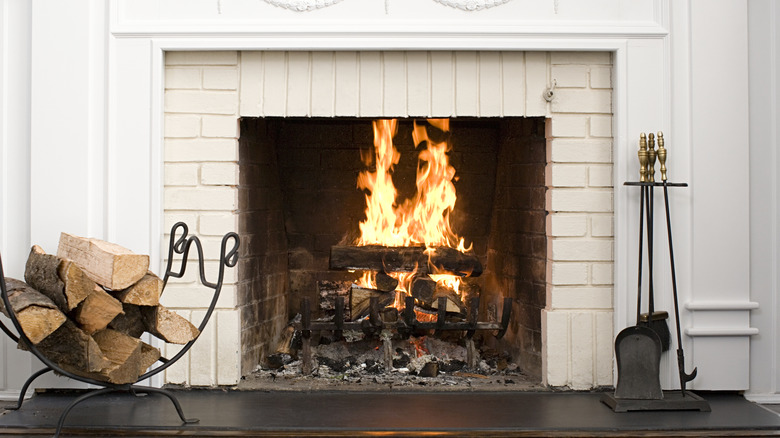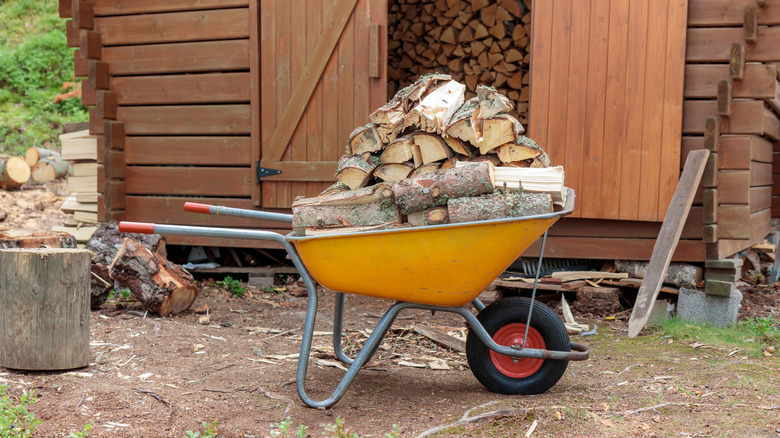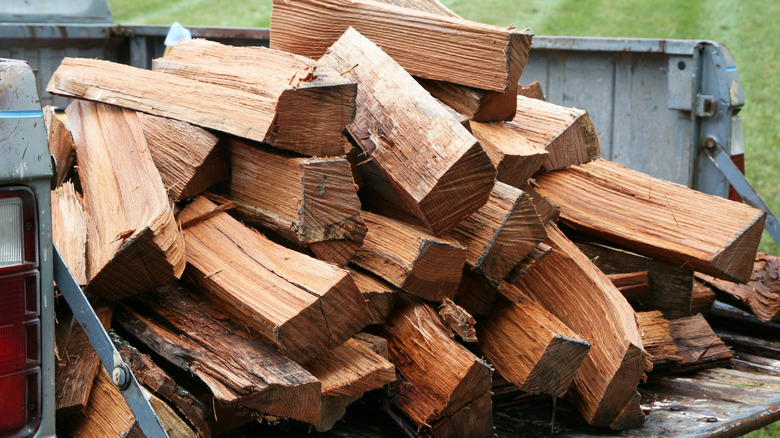The 3 Questions To Ask When Ordering Cords Of Firewood Online
As the cold weather settles in, you may find yourself in need of firewood. Whether you build fires for home heating needs, a cozy atmosphere, or for outdoor entertaining, there are a few factors you should take into consideration before you buy a batch of firewood from an unfamiliar source online. Purchasing firewood is not an especially complicated transaction — and technically all your money is going to go up in smoke anyway — but your supply will go further if you've planned ahead and asked the right questions.
Before we get to these three essential questions, let's go over a little Firewood 101. Firewood is sold in units called cords. A cord is a pile of wood that equals 128 cubic feet, generally measured as 4' x 4' x 8'. If you need less than a full cord, you can purchase in fractions of a cord such as a half-cord or quarter-cord. Don't purchase a "truckful" of wood, as truck sizes vary greatly; it's best to stick with the standardized measures to ensure you get what you paid for. The average price for a cord of firewood can range from $300 to $400, but can vary significantly based on type of wood, where you live, and seasonal demands.
When ordering firewood online, be sure to ask for specifics ahead of time so you know you're getting what you paid for — not just in terms of quantity, but also quality, and so you don't get surprised with any potential hidden fees.
First question: What type of firewood is included?
The longest and hottest burning firewood comes from hardwoods (think: trees that drop their leaves). If you ask the seller this question and they reply with "all kinds of wood" you won't know what you're getting. Oftentimes, this means they're mixing in softwoods such as pine or spruce (think: conifers and evergreens). It's best to ask for specific tree species of the varieties that are included. Ideally, you want hardwoods like oak, maple, and ash.
In general, hardwood is less smoky, throws out fewer sparks, makes great coals, and burns longer overall. The reason for this is that hardwood is denser than softwood. Therefore, it weighs a lot more per cord. For example, a cord of hickory weighs over 4,000 lbs. compared to a cord of cottonwood that's around 2,000 lbs. The increased mass gets you a lot more burn for your money.
It's not absolutely mandatory that your stack of firewood contain just hardwood. Allowing a small amount of softer wood to be included is a convenient way to have a supply of kindling. Because softwood is less dense and more fibrous, it ignites easier for fire-starting (see: Fatwood). However, if a supplier is being vague on the details about the wood, mixing in pine without communicating clearly about it, and can't give you a precise answer, it's a red flag.
Second question: How long has the firewood been seasoned?
Before you buy, it's important to know how long the firewood has been seasoned. "Green" wood, or that which is freshly cut, has a very high moisture content. It's crucial to let the wood dry out until the water content is no more than 20%. This can take 9-12 months or more depending on the type of wood and your climate, hence why your first question is about the "type" of wood. Some woods take longer to season than others. Oak, for instance, can take a year or more, whereas ash can be ready in just six months, if it's maintained correctly.
It's also a good idea to ask when the wood was split. That's because the splitting process will expose more wood to the air and season faster. In addition to not paying for a bunch of water, well-dried wood has fewer sparks, less smoke, and burns longer.
If the firewood you purchased is still fairly green, you can always season it at your location. To do this, you need to stack it on something to get it up off the ground and keep it in a sunny location with plenty of air circulation. If you cover the pile, cover just the top so moisture is not trapped. That said, green wood is supposed to be cheaper than seasoned wood, so make sure the seller isn't trying to sell it to you at seasoned wood prices.
Third question: How much does firewood delivery cost?
This may seem like an afterthought, but don't assume that delivery is free or even included. If you're responsible for picking up and hauling the firewood, do you have the right vehicle? Or, if the seller is delivering it, is there an extra fee? If they do deliver it, will they stack it neatly on your end? Having the wood stacked is not only a great convenience, but will help you be able to measure accurately to know you got the full cord you purchased.
That said, most sellers aren't going to stack it for you: generally, they're just going to dump it in your driveway. With that said, after you've stacked it, if the amount seems inaccurate, contact the seller immediately before you burn any of the wood. Also, if they deliver it, be prepared also to tell the seller where you want them to place the firewood. Note that there there are pros and cons to stacking firewood against your house, so be careful. You'll want to be sure that the wood is stacked far enough away that it's not a fire hazard in itself. Firewood piles can attract rodents and insects, so it's best to keep your woodpile at least 30 feet from your home.
Buying firewood will never be a foolproof process. With that said, as long as you're asking the type of wood, the length of seasoning time, and cost of delivery, you'll be in the best shape possible for a happy burning season.



